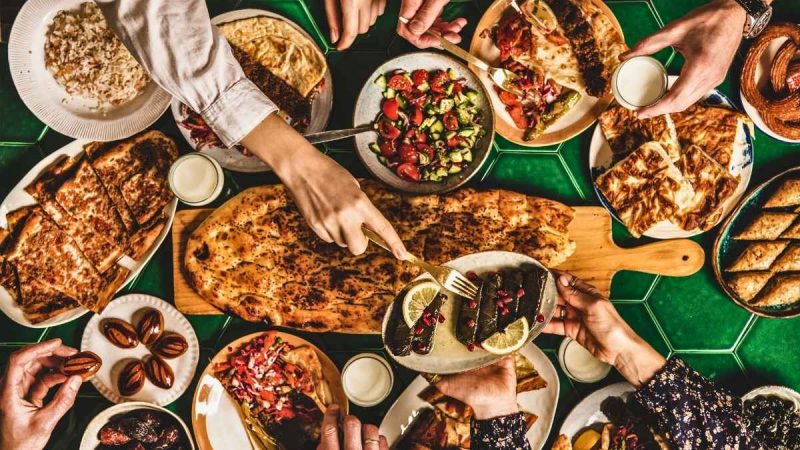Ramadan is a time of reflection, generosity, and, let’s be honest, lavish iftar spreads. But there’s a catch. Up to 40% of food goes untouched at restaurants, and over 80% of households admit to wasting food during the holy month. That’s a lot of perfectly good meals heading straight for the bin. The UAE’s national food loss and waste initiative, Ne’ma, is stepping in to change this pattern. Here’s how you can play your part and make this Ramadan one of mindful consumption.
Why Does Food Waste Spike During Ramadan In UAE?
The month is all about abundance, but sometimes that translates into over-ordering, oversized portions, and buying way more groceries than needed. With grand iftar buffets and elaborate home-cooked feasts, leftovers pile up fast. Sadly, much of this food never gets eaten.
Ne’ma’s Mission: Less Waste, More Impact
Ne’ma is leading efforts to reduce food waste by working with restaurants, hotels, and communities. Their initiatives focus on:
- Serving smaller portions at iftar and suhoor.
- Encouraging proper food storage so leftovers stay fresh.
- Rescuing and redistributing surplus food through structured donation programmes.
And the results are impressive. In 2024 alone, Ne’ma successfully:
- Saved 612,000 kg of food from landfills.
- Prevented 1.5 million kg of carbon emissions from being released.
- Created 49,000 kg of compost to enrich farmland.
- Provided 23,000 meals via smart community fridges.
How You Can Reduce Food Waste This Ramadan?
1. Plan Your Meals Wisely
Make a shopping list and stick to it. Avoid impulse buys, and don’t let deals on bulk groceries tempt you into buying more than you need.
2. Serve Smaller Portions
Buffets and large platters look tempting, but taking smaller servings helps reduce leftovers. You can always go for seconds if you’re still hungry.
3. Store Leftovers Properly
Use airtight containers to keep food fresh longer. Label items with dates so you don’t forget to use them before they spoil.
4. Donate Surplus Food
Many UAE organisations collect and distribute extra food to those in need. Check local food banks or community fridges to make sure your leftovers don’t go to waste.
5. Support Restaurants That Follow Sustainable Practices
Many eateries have started using smaller plates, adjusted portion sizes, and efficient serving methods to cut food waste. Dining at these places encourages more businesses to follow suit.
Also Read: Ramadan In Dubai: 16 Best Iftar Experiences In the City That Will Make Your Ramadan Special
The UAE’s Fight Against Food Waste
The country’s first Food Waste Baseline Study is set to provide comprehensive data by 2026, helping authorities create even more effective solutions. With small adjustments, from home kitchens to five-star restaurants, food waste can be significantly reduced.
Ramadan is about gratitude and giving. By being mindful of how much food we buy, cook, and consume, we not only honour the spirit of the holy month but also contribute to a sustainable future. So, this Ramadan, let’s fill plates wisely, store leftovers smartly, and ensure every meal truly counts.
Cover Image Courtesy: Canva Stock Images
For more such snackable content, interesting discoveries and the latest updates on food, travel and experiences in your city, download the Curly Tales App. Download HERE.
